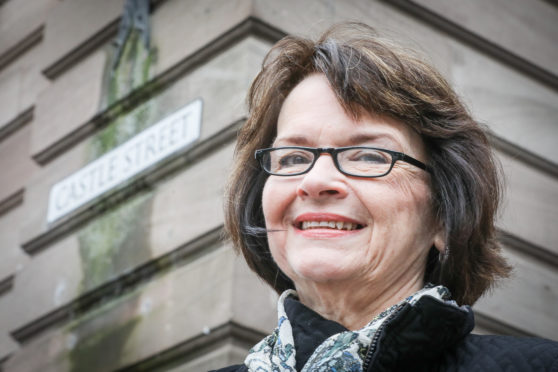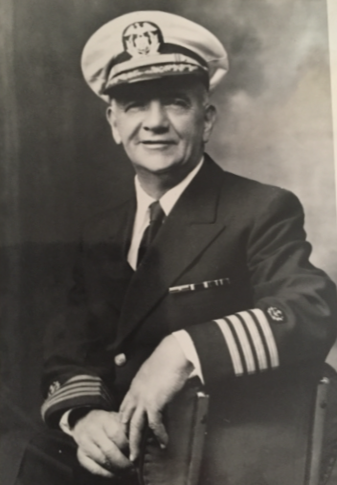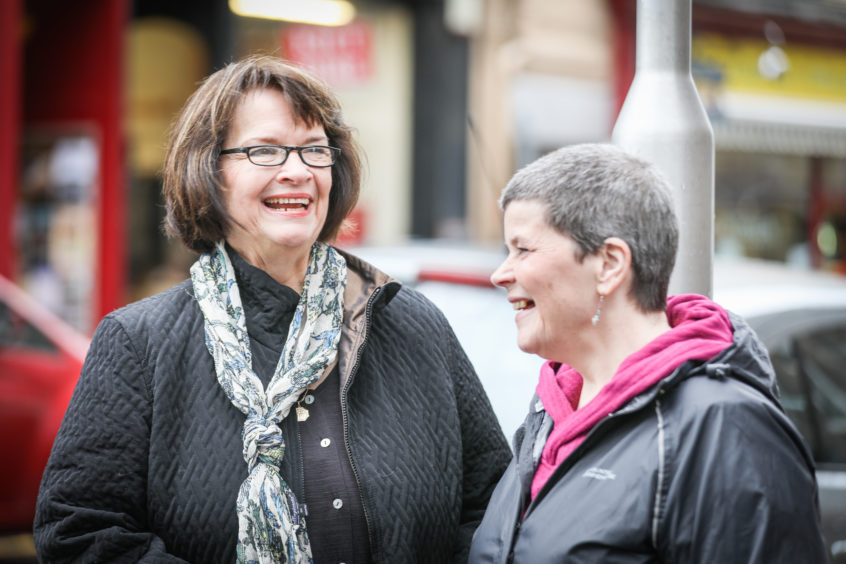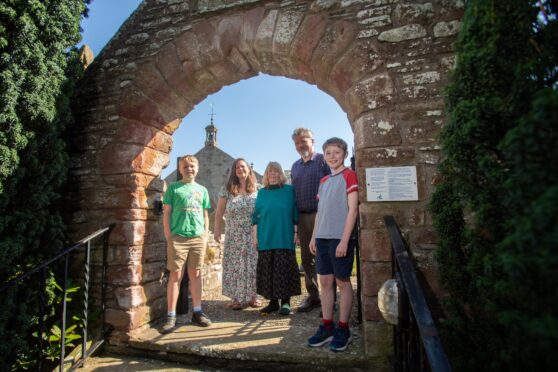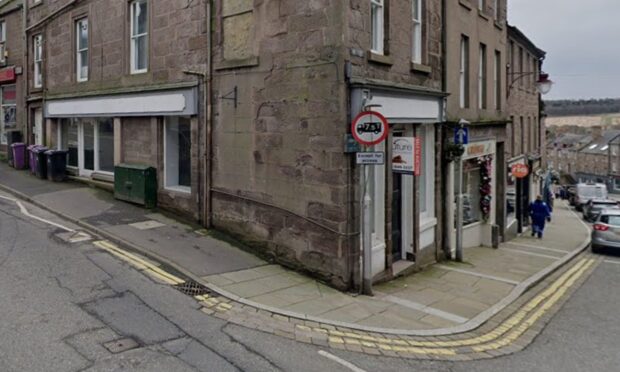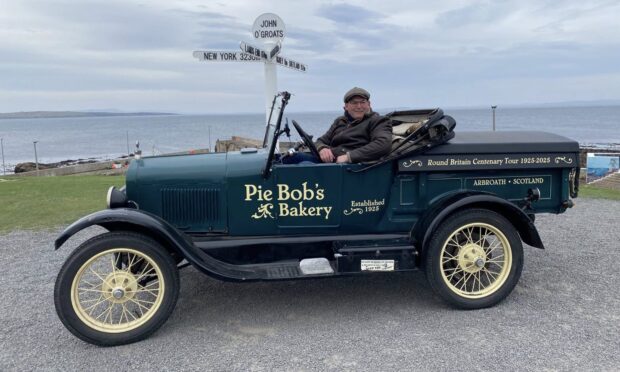He was a Dundee youth who emigrated to America in pursuit of a naval career, but he would become engulfed in the conflagration of two global conflicts – cheating death three times.
David Melville Nicoll was one of just a handful of naval captains whose ships were sunk in the First and Second Worlds Wars.
Captured by the Japanese, he was ordered to dig his own grave, but just hours away from his execution, Nicoll was freed by allied troops in what would become known as the most daring prison camp raid of WWII.
His Granddaughter, Barbara Bross, has made an emotional return to David’s childhood home in Castle Street – 135 years after he was born there.
Mrs Bross and husband Tim issued an appeal to track down any surviving relatives through the Courier in April, however, despite receiving a letter wishing good luck in her quest, the trail went cold, until Kirriemuir resident, Cathy Austin stepped in and traced surviving relatives in Glasgow.
The couple have spoken out about the warm welcome they have received from Dundee residents since they arrived.
She said: “The whole experience has been incredibly emotional and people have been really welcoming.
“We have visited properties in Dundee and Broughty Ferry that my grandfather lived in before he left for America.
“It’s been an amazing experience – Dundee is a beautiful city.”
Mr Nicoll left Dundee for America at around 18 years old and joined the navy.
Rising to the rank of Captain, he met and fell in love with Coalany Everingham while docked at Sydney, Australia, and they married in a ceremony on board his ship, the Suruga.
During World War I, his ship was torpedoed and sunk by a German submarine off the coast of Italy and in World War II his tanker, the Gertrude Kellog was bombed and destroyed by in Manila Bay by the Japanese three days after the attack on Pearl Harbour.
Badly wounded, he was taken prisoner by the Japanese, enduring inhumane and sadistic treatment at the hands of his captors.
Ordered to dig his own grave, he was just hours from execution when he was one of more than 2,000 inmates freed in one of history’s most audacious rescue missions – an operation described by American General Colin Powell as “the textbook airborne operation for all ages and all armies”.
After the war, Mr Nicoll, who Mrs Bross remembers vividly as a loving and generous man, returned home and sold war bonds.
He passed away in 1955 at the age of 70 in Atlanta.
